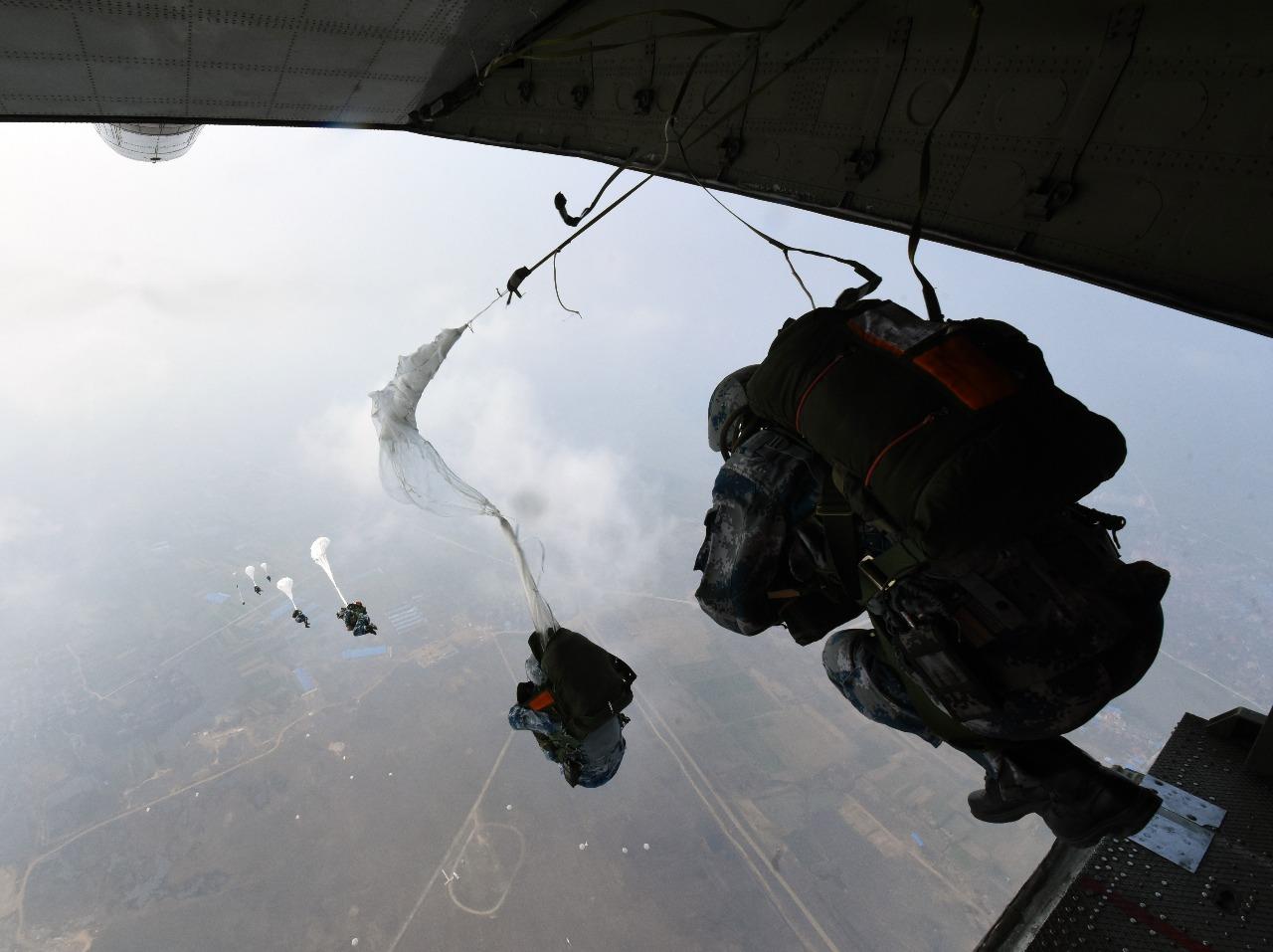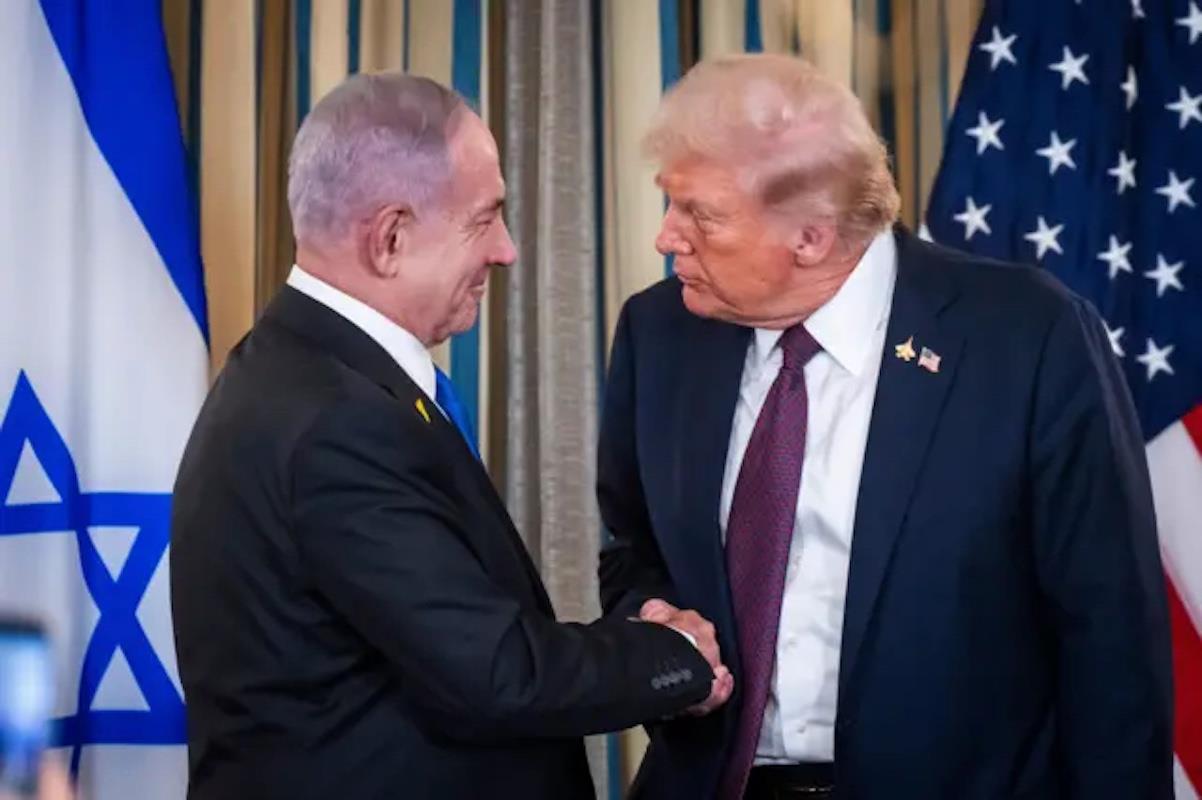
Trump's Gaza Peace Plan Could Revive Pax Americana
It remains unclear whether the plan will succeed, as many details are still vague and its implementation has yet to be finalized.
However, the US has involved many Muslim states-including Turkey, Saudi Arabia, Qatar in the Middle East and Pakistan and Indonesia in Asia. This could signal the start of a new peace framework in the region.
Apparently, America has succeeded in negotiating a comprehensive peace plan that could be vital for the future global revival of a Pax Americana. European countries might also have a part to play. The plan could help strengthen US confidence in Asia, where recent actions have been seen as erratic and untrustworthy.
Russia and China have not been involved, marking a significant setback in a region crucial to both countries' strategic interests and raw materials. The Middle East could thus feature a new political map without Russia and China.
Latest stories
Russia quietly arming China's paratroopers for Taiwan fight Typhon in Japan changes the game - and China knows it

China's cargo ban gives new meaning to BHP's 'Broken Hill' origin
Russia, directly or through its proxies, has been a key player in the region since the end of World War II. China has made significant political and economic inroads in recent decades. Yet both have supported Iran, the clear loser in the area.
Pakistan is expected to deploy 50,000 troops against the Houthis, Iran's proxies. Syria has become the ground for a compromise between Turkey and Israel. Pro-Iranian forces have been disarmed in Lebanon and are now cornered in Iraq.
Another factor is that in the coming weeks, the war in Ukraine could once again take center stage. Political and military efforts could shift focus to supporting Ukraine and countering Russia.
Despite past tariff scares and numerous blunders and issues with allies in Asia and Europe, Trump may have achieved a significant success in Gaza. However, it could still fall apart soon.
If the plan does succeed, it will depend on the US or Israel, not Russia or China. This proves the US's historic massive advantage over its adversaries. America may only need to score one goal to win, while Russia or China must score many.
Still, even if everything works out, it's not the end. There are three key aspects:
The hearts and minds of people in Europe and the world. After decades of being buried under the ashes, antisemitism has reemerged. It has become increasingly acceptable, and in some cases, even fashionable. This trend needs to be reversed to ensure a stable future for Israel and the region. It will be delicate because some of the countries involved in the deal are happy to dispatch Hamas but are equally pleased to see Israel as the global villain, discriminated against and isolated. The second aspect involves Ukraine. The main point is not just stopping Russia's invasion but reversing it. It will require significant effort, with possible support from Israel or Turkey. Lastly, implementing the agreement will be a minefield full of traps that could blow everything up.One very delicate element for the US will be restoring ties with India while maintaining a balance with Pakistan. Pakistan maintains good relations with China, although it opposes Iran in its fight in Yemen. Just hours after the Washington announcement, Indian Prime Minister Narendra Modi congratulated the agreement.
But the political significance remains. It's a blow to Beijing's September 3 parade, where China showcased its new weapons and the newly formed pact with Russia and North Korea.
China, outside the Middle East, is surrounded by many adversaries. It can improve relations with India, but what about the disputed borders? It can strengthen ties with Japan or South Korea, but what about Taiwan? It can connect with Vietnam or the Philippines, but what about the South China Sea?
The US doesn't have territorial disputes with any of them; the issue is the opposite – they complain that the US doesn't show enough love and support, which can be complicated. Betrayed love and broken hearts can be dangerous. However, territorial competition is an entirely different ball game.

Sign up for one of our free newsletters
-
The Daily Report
Start your day right with Asia Times' top stories
AT Weekly Report
A weekly roundup of Asia Times' most-read stories
This article first appeared on Appia Institute and is republished with permission. Read the original here .
Sign up here to comment on Asia Times stories Or Sign in to an existing accoun
Thank you for registering!
An account was already registered with this email. Please check your inbox for an authentication link.
-
Click to share on X (Opens in new window)
X
Click to share on LinkedIn (Opens in new window)
LinkedIn
Click to share on Facebook (Opens in new window)
Facebook
Click to share on WhatsApp (Opens in new window)
WhatsApp
Click to share on Reddit (Opens in new window)
Reddit
Click to email a link to a friend (Opens in new window)
Email
Click to print (Opens in new window)
Print

Legal Disclaimer:
MENAFN provides the
information “as is” without warranty of any kind. We do not accept
any responsibility or liability for the accuracy, content, images,
videos, licenses, completeness, legality, or reliability of the information
contained in this article. If you have any complaints or copyright
issues related to this article, kindly contact the provider above.

















Comments
No comment